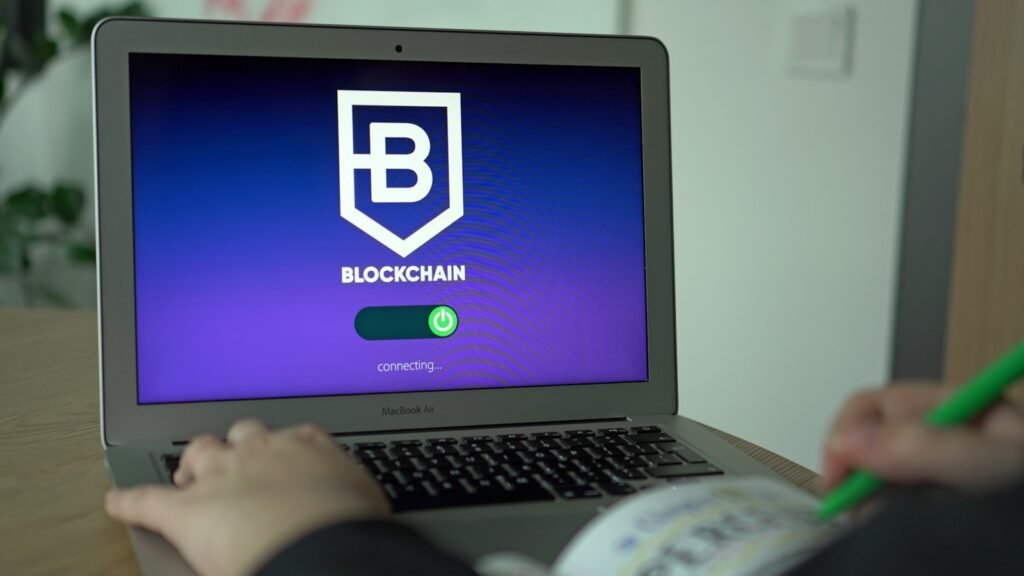The concept of blockchain voting has gained significant attention as governments and organizations explore ways to enhance electoral transparency and security. With growing concerns over digital voting security, blockchain technology presents itself as a potential solution to modernize voting systems. However, like any innovation, it comes with its own set of advantages and challenges.
In this blog, we’ll take an in-depth look at how blockchain can revolutionize voting, the potential risks involved, and whether it can truly be the future of elections.
Understanding Blockchain Voting
Blockchain is a decentralized digital ledger that securely and transparently records transactions. When applied to voting, it can create a tamper-proof system where each vote is encrypted, time-stamped, and stored across multiple nodes, making fraud nearly impossible.
Unlike traditional voting methods, blockchain voting eliminates the need for physical ballots, reduces human error, and can potentially increase voter turnout by enabling remote participation. However, the technology is still in its early stages, and concerns around accessibility, privacy, and implementation remain.
Also Read: CEX vs DEX: Which Crypto Exchange Is Right for You?
Pros of Blockchain Voting
1. Enhanced Security and Tamper-Proof Voting
One of the biggest advantages of blockchain in voting is its ability to prevent tampering. Since each vote is cryptographically secured and linked to the previous transaction, altering any record would require changing the entire chain, something nearly impossible without detection.
2. Increased Transparency and Trust
Blockchain’s decentralized nature ensures that all votes are publicly verifiable while maintaining voter anonymity. This means election authorities and independent auditors can confirm results without exposing individual voter choices, fostering greater trust in the electoral process.
3. Reduced Costs and Faster Results
Traditional voting involves printing ballots, staffing polling stations, and manual counting, all of which are costly and time-consuming. Blockchain-based voting can streamline the process, reducing administrative expenses and delivering near-instant results.
4. Accessibility for Remote Voters
Blockchain enables secure online voting, allowing citizens living abroad, those with disabilities, or individuals in remote areas to participate without physical presence. This could significantly boost voter turnout in regions where accessibility is a challenge.
Also Read: Crypto Wallets: Hot vs Cold Storage Comparison
Cons of Blockchain Voting
1. Vulnerability to Cyberattacks
While blockchain is highly secure, no system is entirely immune to hacking. Cybercriminals could target voter registration databases, personal devices, or even exploit vulnerabilities in the blockchain network itself. Ensuring digital voting security requires continuous updates and robust encryption.
2. Digital Divide and Accessibility Issues
Not all voters have access to smartphones, computers, or stable internet connections. Relying solely on blockchain voting could disenfranchise marginalized communities who lack digital literacy or resources, leading to unequal participation.
3. Privacy Concerns
Although blockchain anonymizes votes, linking voter identities to their encrypted ballots raises privacy concerns. If encryption is compromised, voter anonymity could be at risk, leading to potential coercion or vote-selling.
4. Scalability Challenges
Handling millions of votes simultaneously requires a highly scalable blockchain network. Current systems often struggle with high transaction volumes, resulting in delays or system failures during large-scale elections.
Also Read: How to Buy Bitcoin: Step‑by‑Step Tutorial
How Does Blockchain Voting Compare to Traditional Methods?
Traditional voting relies on paper ballots, centralized counting, and manual verification, which can be slow and prone to human error. Blockchain voting, on the other hand, automates verification, reduces fraud risks, and speeds up the counting process.
However, paper ballots have a long-standing history of reliability, whereas blockchain voting is still experimental. Many countries have tested blockchain-based elections on a small scale, but widespread adoption requires addressing security, accessibility, and regulatory hurdles.
Real-World Applications of Blockchain Voting
Several countries and organizations have experimented with blockchain voting:
- Estonia, a pioneer in digital governance, has successfully implemented internet voting (though not fully blockchain-based) for over a decade.
- West Virginia (USA) tested a blockchain-based mobile voting app for overseas military personnel.
- Switzerland conducted trials for blockchain voting in municipal elections.
These experiments show promise but also highlight the need for further refinement before global adoption.
Also Read: How to Buy Ethereum: The Complete Beginner’s Guide

The Future of Blockchain in Elections
Blockchain voting has the potential to revolutionize democracy by making elections more secure, transparent, and accessible. However, before it becomes mainstream, key challenges must be addressed:
- Stronger cybersecurity measures to prevent hacking.
- Universal digital inclusion to ensure no voter is left behind.
- Clear legal frameworks to regulate blockchain-based elections.
If implemented correctly, blockchain could restore public trust in voting systems, reduce fraud, and modernize democracy for the digital age.
Also Read: How to Pick the Right Crypto Exchange & Trading Platform
Final Thoughts
The debate over blockchain voting is far from settled. While its benefits in digital voting security and transparency are undeniable, concerns over cyber threats and accessibility cannot be ignored. The technology is promising, but widespread adoption will require collaboration between governments, tech experts, and policymakers to ensure a fair and secure electoral process.
As blockchain continues to evolve, it may one day become the gold standard for elections worldwide, but until then, careful testing and gradual implementation will be key to its success.

